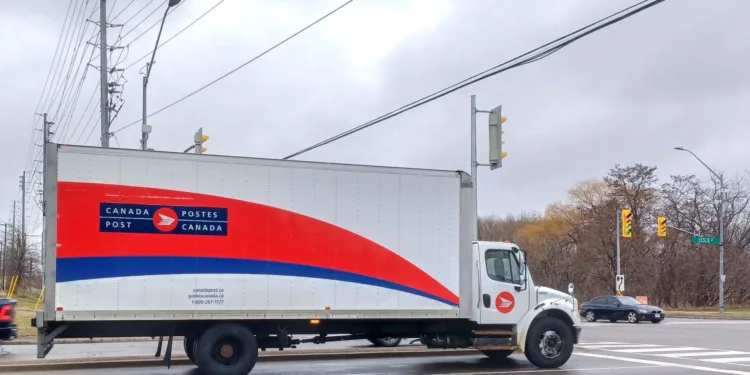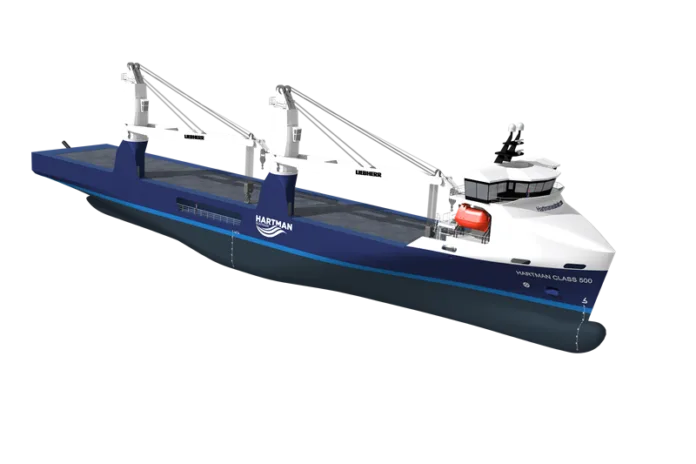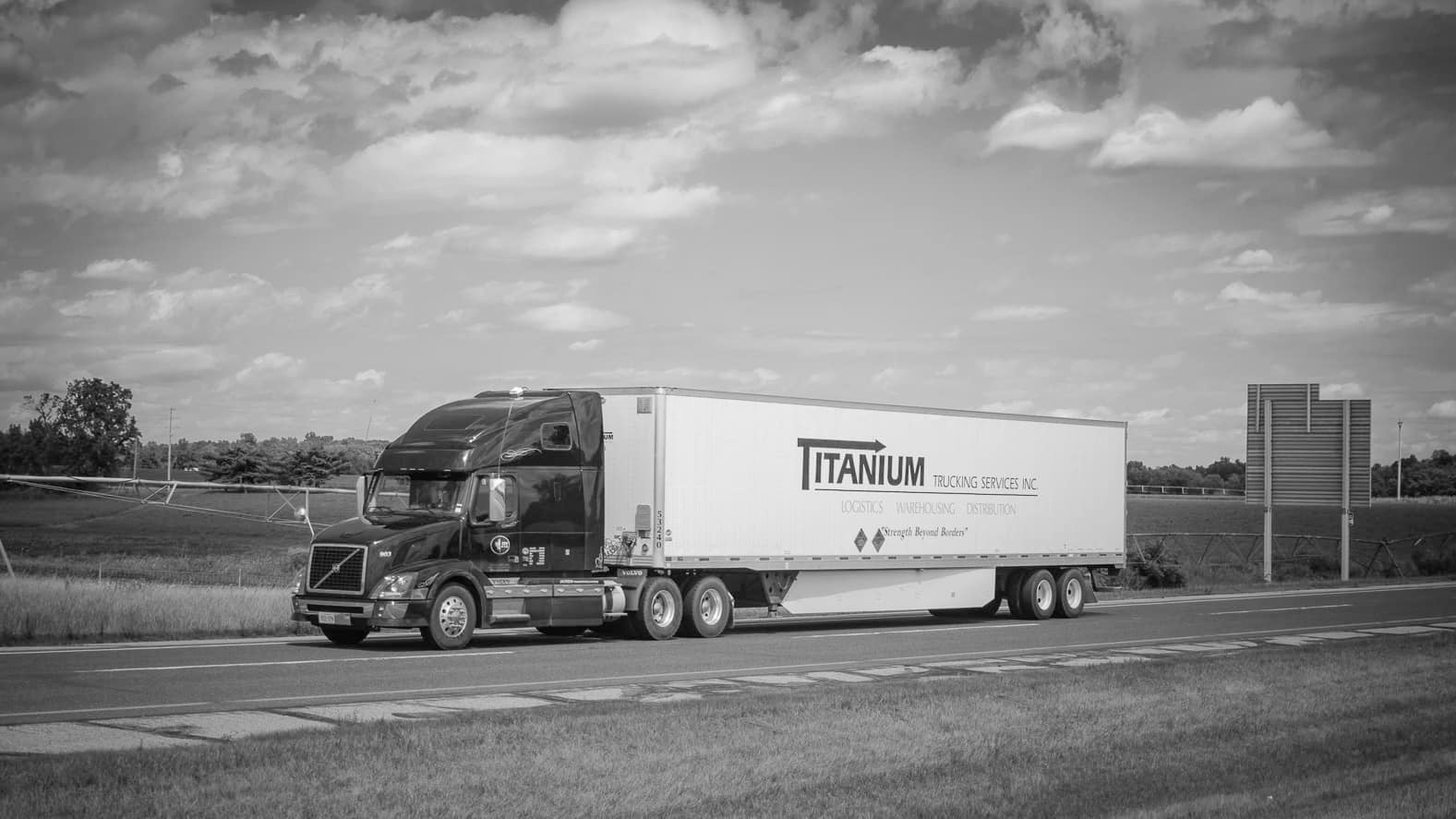Mail carriers on strike since Friday are jeopardizing their own jobs if they continue making demands that prevent Canada Post from restructuring and winning back parcel customers who have fled to private courier companies in droves, according to industry analysts.
The Canadian government on Thursday instructed the national postal operator to move forward with a long-overdue modernization that would reduce delivery frequency, end residential door delivery in favor of more efficient community mailboxes and close some post offices in areas that are no longer rural. The Canadian Union of Postal Workers, angered by the lack of consultation and concerns that streamlining will result in layoffs, quickly called a work stoppage after more than 20 months of bitter negotiations.
In light of the government-mandated changes, Canada Post said it is considering whether to dial back its latest contract offer to the mail carriers, adding that CUPW’s proposals are unaffordable and that the strike will further harm the company’s financial position. Union demands would cost billions of dollars as it tries to become financially sustainable after years of losses, it added.
“The union should wake up and see the kind of money they’re getting paid for the work they do. They will never find another job that will pay them even half of that, so don’t make the situation worse,” said parcel shipping expert Satish Jindel, president of ShipMatrix, in an interview. “This is what UPS Teamsters have done by asking for that big increase in 2023.”
UPS is in the process of shrinking its network, laying off 20,000 package handlers and offering drivers buyouts to bring costs in line with lower demand as parcel growth stagnates and the carrier gives up half the business it did for Amazon.
Canada Post’s share of the parcel delivery market has fallen from 62% in 2019 to below 24%, according to the government-owned company. Canada Post in late May reported a 50% drop in parcel volumes, year over year, because protracted contract negotiations were eroding shipper confidence in the postal operator. Many businesses switched to alternative final-mile couriers after a 32-day strike during the last holiday season and the threat of another strike.
“On the union side, they’re very shortsighted. The network isn’t working. You can’t make a letter-carrier network for a parcel business. So, in addition to not being realistic about where the business is now, they’re endangering future business,” Alison Layfield, vice president of product development at ePost Global, told FreightWaves.
Most e-commerce package consolidators like ePost Global are only tendering about 10% of their volumes to Canada Post because there are so many private-carrier options, Layfield said. But those carriers cannot deliver to P.O. boxes or remote zip codes.
Companies like TForce Logistics, UniUni, Fleet Optics, Amazon’s Dragonfly, and Purolator, an express delivery company that is mostly owned by Canada Post, are all expected to pick up business diverted from Canada Post.
The alternative carriers will be handling more parcels than usual, so there may be delivery delays, on-demand printing company Printful told customers via email.
U.S. Postal Service response
Some businesses still ship through Canada Post because they want a lower cost, may not have all the details for clearing customs with a commercial shipment or don’t want the customer to be responsible for import charges.
When the strike began, ePost Global began diverting many shipments to the six delivery partners it uses, which already have incorporated ePost’s routing guidelines.
ePost Global is still handing packages to the U.S. Postal Service for those customers that haven’t upgraded service yet. The U.S. Postal Service says it continues to accept and transport mail and packages to Canada. The postal operator will store them in trailers there until they’ve exhausted their capacity, at which time they will store mail in U.S. international service centers, Layfield explained. If the strike continues for a long period of time, the USPS will eventually have to suspend service to Canada.
“It is highly recommended that mailers avoid sending perishable or time sensitive items via the postal service and utilize ePost Global’s alternative Canadian carrier network,” the e-commerce logistics provider, said in a message to customers. “Mail and parcels shipped via USPS during this time will be staged in Canada for FIFO (first-in first-out) by Canada Post once the labor disruption has ended and workers resume their jobs.”
Layfield endorsed Canada Post’s planned modernization moves to become more competitive in the parcel sector, including weekend delivery, hiring part-time workers and community boxes.
“The network delivery is where they have all their pain points. They’re not going to be able to improve that unless they have employees who are willing to accept those changes,” she said.
Andre Pharand, who heads his own e-commerce logistics consulting firm, dismissed community mailboxes as a viable access point for parcels.
Canada Post will need to deliver parcels to the door because that is what competitors do and what consumers expect, he said in a LinkedIn post. Even in neighborhoods with community mail boxes, letter carriers deliver items to the door when the parcel doesn’t fit in the door or the compartment is full. And, he noted, community mail boxes “are two generations old in the parcel locker world,” where consumers expect more visibility, delivery notifications and the ability to unlock the compartment on their phone rather than using a key they might forget.
Employer rejects labor positions
Canada Post said it can’t afford the union’s contract demands. The request for a 19% wage increase over four years, benefit improvements, new vehicles and other items would add more than US$2 billion per year in new costs. The CUPW is also seeking 17 personal leave days (four more than currently), in addition to current vacation leave of up to seven weeks and holidays, which would cost another $2 billion over the contract’s duration.
The mail carriers also want Canada Post to end or severely restrict use of contracted services and instead hire more full-time employees represented by CUPW. The union also insists letter carriers be paid for eight hours of work even if they finish their routes early, according to the company. Canada Post is seeking the ability to redesign routes on the fly as volumes merit and level out the workload by reassigning letter carriers to other work if they are expected to finish their shift early.
“Postal workers are fighting to not only keep reliable and affordable services in communities across the country, but to provide even more services. Unlike private companies that deliver only where it’s profitable, Canada Post keeps communities linked and Canadians connected and that matters,” CUPW said in a statement on Monday. “The erosion of our bargaining rights [due to repeated government intervention] will only pave the way for more cuts, more precarious jobs, and fewer protections for not only postal workers, but all workers.”
Mail carriers argue that mismanagement is largely to blame for Canada Post’s troubles and that Canada Post diverts a lot of parcel business to Purolator, which is profitable.
Layfield said Canada Post has to rehabilitate its operations and its reputation if it is to successfully compete in last-mile delivery.
“Businesses don’t have confidence in them anymore. Many haven’t gone back to Canada Post since the last strike and I don’t think that’s going to happen until Canada Post proves themselves again,” she said.
Click here for more FreightWaves/American Shipper stories by Eric Kulisch.
Write to Eric Kulisch at [email protected].
RELATED READING:
Canadian government to end home delivery in Canada Post reform
Canada Post makes new contract offer to mail carriers
Canada Post letter carriers refuse to carry direct marketing mail
The post Striking Canada Post workers ‘endanger’ future parcel business, execs say appeared first on FreightWaves.














